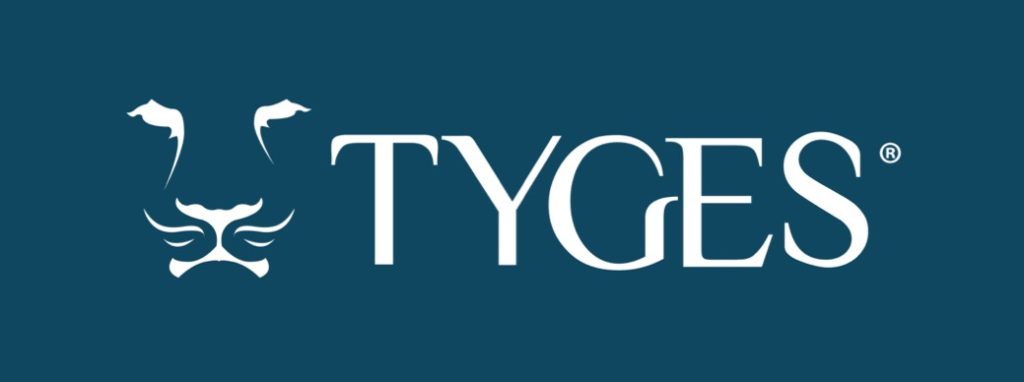A few weeks ago, I was talking with some of my friends who just wrapped up their job search. They shared that there was one tricky part of the process they were torn on how to navigate: the salary question.
I spoke with a couple coworkers on my team here at TYGES and asked them to share their take on how a candidate should deal with this question.
Pamela Grogg is an Account Executive on the Behavioral Health team at TYGES. She works directly with hiring authorities and candidates and walks each side through the interview process.
Research the market
Before going into the interview, Pamela recommends that the candidate have an idea of what the market offers for the role. The candidate should do as much research on the position as possible to gather insights on the average compensation. That way, they can go into the interview prepared with a general range in mind and can have a better idea if the role will be a fit for their needs.
If asked about salary needs, share a specific number
If the interviewer asks for the candidate’s salary needs, Pamela recommends sticking with a solid number rather than sharing a range with the interviewer. If you can be flexible on the number, share that as well. But a specific number will make the candidate appear confident rather than wishy-washy.

Negotiations don’t mean no!
From Pamela’s point of view, once the candidate reaches the final stage of the interview process and has an offer, they have three choices:
- Accept
- Decline
- Negotiate
When it comes to salary negotiations, candidates often get nervous. Many worry that negotiating means they are declining the offer or that it will mean the offer will be rescinded. But Pamela says that is not the case. It is simply a piece of the process. So, negotiate!
I also got some thoughts from Ted Fletcher, Account Executive on the Manufacturing Recruiting team at TYGES. Ted specifically approached the question from the angle of a recruiter acting as a middleman between the hiring authority and the candidate.
Let the recruiter bring up the salary question
Ted’s first piece of advice to candidates working with a recruiter is to avoid sharing their salary needs right off the bat. The interviewer will lead the conversation through that question at the right time, but if it is brought up by the candidate themself, they will come off transactional.
Salary match is not the only factor a recruiter is evaluating during the screening process, so if a candidate narrows the conversation to compensation too quickly, it may signal a lack of cultural fit between the candidate and the organization.
Be transparent about salary needs
While the candidate should not bring up the salary question, Ted says the recruiter should give the candidate space to express all their interests early on in the screening process. Here at TYGES, we use an acronym to help us understand how a candidate prioritizes different factors that they need to weigh as they consider their career options. The acronym is CLAMPS, and it stands for Challenge, Location, Advancement, Money, People (company culture), and Security (job security). We ask candidates to rank those factors in order of importance. And it is here that Ted recommends the candidate be upfront and transparent with the recruiter on the importance of salary in their decision. If a candidate is money-driven and their range is above the range the company offers, the recruiter will be able to steer the candidate away from the position and save both hiring authority and candidate time.
Leave negotiations to the end of the process
A recruiter should gather your salary expectations near the start of the process and move you forward if you are within range. But Ted recommends staying away from negotiating salary until the later stages of the interview. Again, negotiating too early in the process may raise a red flag.
Ultimately, both Pamela and Ted recommend having a solid initial understanding of the market for the role. From there, be honest with the hiring authority and the recruiter about salary needs when that information is asked of you. And do not be afraid to negotiate once compensation naturally comes up near the end of the process.

Bonus – Ask for a raise!
As a bonus, Pamela shared some thoughts when it comes to asking for a raise after you’ve already been established at the company.
The first advice she gave me on this point was simple – Ask for one! Many people are scared to tackle this. But if you feel your experience has led you to deserving more compensation, there is no harm in bringing it to your company’s attention.
Timing is a factor, however. If you approach your company right before the annual review, the budget has likely already been set. With that in mind, Pamela recommends bringing up the question a few months prior to the annual review so there is still time to add it to the budget.
For more insights on your job search, feel free to check out TYGES’ website.

Written by: MELINDA MARRIOTT, Executive Recruiter
Melinda Marriott is a recent graduate of William & Mary with a Bachelor of Arts degree in Psychology and in Government. She is a hard-working individual with an enthusiasm for learning and embracing opportunities, and a desire to improve the lives of others. Melinda has established herself as a knowledgeable recruiter in the ABA industry. As a recruiter for TYGES Behavioral Health, Melinda strives to connect outstanding ABA professionals with the most fitting opportunities to benefit both them and their clients.
In her free time, Melinda can be found exploring Williamsburg, reading, listening to music, or being with people in her community.

“We’re here to make good things happen for other people.“


